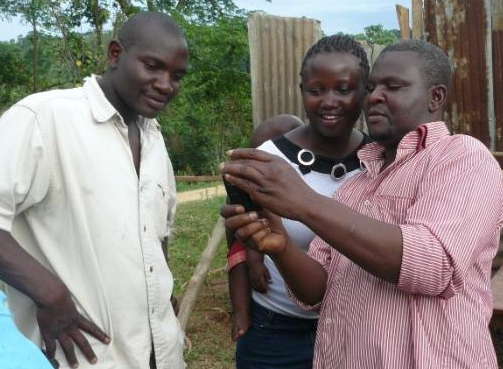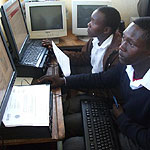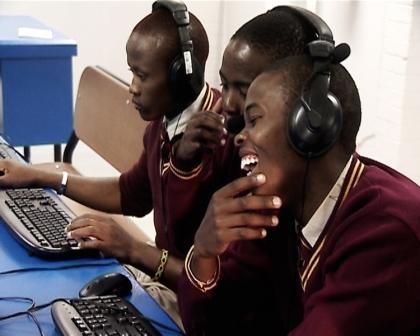Exciting opportunities for learning innovation are on the horizon in Africa, says Michael Trucano, the World Bank’s Senior ICT and Education Policy Specialist, who will deliver a keynote speech at eLearning Africa 2011. New submarine cables and backbone networks promise a new era of affordable, high speed broadband connectivity; eBooks offer a ‘huge potential’. New methods such as serious games for […]
Field Stories
Mobile bridges, intra-national divides: research from South Africa
A great way to find out what does and does not work in eLearning is to listen to those that have been conducting longitudinal research and developing empirical evidence over many years. Researchers at the University of Cape Town, Associate Professor Laura Czerniewicz, director of the Centre for Educational Technology and Cheryl Brown, an award-winning lecturer at the Centre and their team have done […]
ICTs activate women in Burkina Faso
The busy community centres set up by the Réseau Femmes en Action (Women in Action) network in Burkina Faso offer Internet cafés, libraries, reading areas and meeting rooms. Françoise Bibiane Yoda, Executive Director of the Réseau Femmes en Action network explained how they work.
A text message saves a life in remote Malawi
Piers Bocock saw how the K4Health SMS project saved a dying mother’s life in central Malawi.
Delivering video by mobile phone to classrooms in Tanzania
A ground-breaking project, Bridgeit, locally known as Elimu kwa Teknolojia or Education through Technology, is now operating for nearly 80,000 pupils in 150 Tanzanian schools. The programme enables a teacher to download videos on math, science or HIV/AIDS to mobile phones which are connected to a TV set in the classroom. Students who have watched the videos achieve improved test results.
Nigerians learn new campaigning skills
New communications technology and social networking are about to influence the politics of the African continent once again. This time it is Nigeria, whose leaders are rapidly coming to terms with the political significance of new forms of communication and networking sites, such as Facebook and Twitter, as the country prepares to go to the polls in April.
AVU launches online Open Education Resources portal
The African Virtual University (AVU) launched the interactive Open Education Resources portal OER@AVU in January this year. The portal can be accessed at http://oer.avu.org and contains quality resources developed together with twelve universities in ten African countries. The resources are released under the Creative Commons open licence. Through the portal, AVU will enable academics throughout the African Continent and beyond to share, distribute and disseminate […]
iCow: transforming animal husbandry in Kenya
Young technology entrepreneurs led by Sue Kahumbu and Charles Kithika have developed a pioneering voice-based mobile phone application called “iCow” that helps farmers to manage the breeding cycles of their dairy cows.The application handles dairy cow nutrition up to calving day, using prompts by the mobile phones now widespread in Kenya, even used by illiterate farmers. The pilot project won the “Apps4Africa” contest organised […]
eLearning at the University of Dar es Salaam
Higher education is one of the fastest growing sub-sectors of education in Tanzania. Back in 1990 there were only 3,146 students attending the country’s two universities. Today there are 15,000 students enrolled at the University of Dar es Salaam (UDSM) alone. New universities have opened. Existing universities have increased their intake of students and UDSM, once one of the most prestigious higher education […]
Cloud computing: computer labs used for 2.5 million students in 2500 schools
The South African government has a broad vision based on Batho Pele (“People First”) principles to bring transparency and efficiency to government through the adoption of information and communication technology (ICT). Gauteng is the most populous province in South Africa with 9.5 million residents and home to Johannesburg, the economic capital of South Africa. A historic cloud computing initiative provides ICT and Internet access […]


























